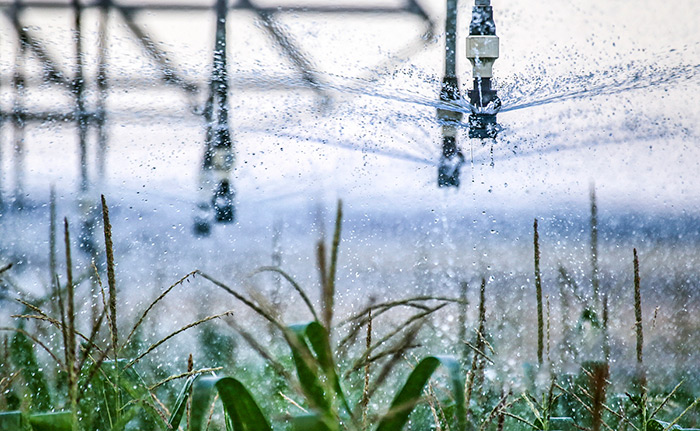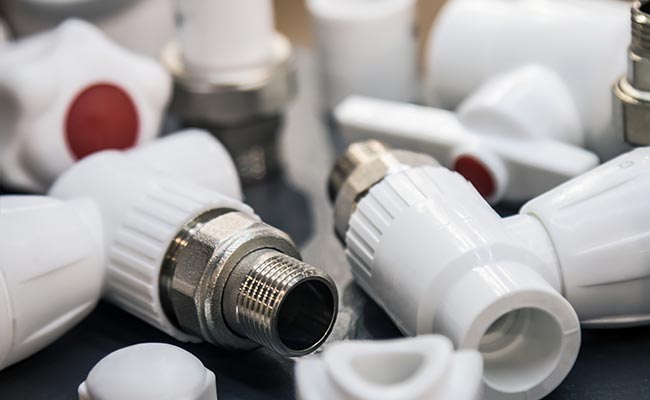UPVC valves play a crucial role in various industries due to their durability and resistance to corrosion. You will find these valves essential for controlling fluid flow, regulating water pressure, and preventing leaks. Their robust nature makes them cost-effective and versatile, suitable for both residential and commercial applications. The demand for UPVC valves continues to grow as industries emphasize energy efficiency and sustainability. These valves not only enhance operational efficiency but also contribute to resource conservation by reducing waste generation.
Understanding UPVC Valves
Definition and Anatomy
What are UPVC Valves?
UPVC valves, or Unplasticized Polyvinyl Chloride valves, are essential components in fluid control systems. You will find them widely used due to their durability and resistance to corrosion. These valves are made from high-quality UPVC materials, ensuring they perform exceptionally well in various weather conditions. Their robust nature makes them a popular choice for both residential and industrial applications.
Key Components of UPVC Ball Valves
UPVC ball valves consist of several key components that contribute to their effectiveness. The main part is a hollow, perforated ball that controls fluid flow. When you turn the valve handle, the ball rotates, allowing or blocking the passage of fluid. This design ensures a smooth operation and a leak-proof seal. The lightweight nature of UPVC materials adds to the ease of installation and handling, making these valves a versatile option for many systems.
Operation and Types
How UPVC Valves Work
Understanding how UPVC valves work is crucial for their effective use. When you turn the handle, the ball inside the valve rotates. This rotation aligns the hole in the ball with the flow direction, allowing fluid to pass through. Conversely, turning the handle in the opposite direction blocks the flow. This simple yet efficient mechanism makes UPVC valves reliable for controlling fluid movement in various systems.
UPVC valves come in different types, each serving specific purposes. You can choose from ball valves, butterfly valves, and check valves, among others. Each type offers unique features suited for different applications. For instance, UPVC ball valves are known for their durability and smooth operation, making them ideal for systems requiring frequent opening and closing. Butterfly valves, on the other hand, are suitable for larger pipes due to their compact design. Understanding these types helps you select the right valve for your needs.
UPVC valves come in different types, each serving specific purposes. You can choose from ball valves, butterfly valves, and check valves, among others. Each type offers unique features suited for different applications. For instance, UPVC ball valves are known for their durability and smooth operation, making them ideal for systems requiring frequent opening and closing. Butterfly valves, on the other hand, are suitable for larger pipes due to their compact design. Understanding these types helps you select the right valve for your needs.
Applications and Benefits
Industrial Applications
Use in Water Treatment
You will find UPVC valves indispensable in water treatment facilities. These valves control the flow of water, chemicals, and sludge efficiently. Their resistance to corrosion ensures a long lifespan, reducing the need for frequent replacements. This durability translates to lower maintenance costs and extended service intervals. By choosing UPVC valves, you contribute to a more sustainable operation, minimizing waste generation and promoting a greener future.
Role in Chemical Processing
In chemical processing, UPVC valves play a crucial role. Their chemical resistance makes them ideal for handling various substances without degrading. You can rely on these valves to maintain integrity under harsh conditions, ensuring safe and efficient operations. The robust nature of UPVC materials provides peace of mind, knowing that your systems are protected from leaks and failures. This reliability enhances productivity and reduces downtime, making UPVC valves a valuable asset in chemical industries.
Benefits of Using UPVC Valves
Durability and Longevity
UPVC valves offer exceptional durability and longevity. You benefit from their ability to withstand harsh environments without corroding or wearing out quickly. This resilience means fewer replacements and repairs, saving you time and money. The long service life of UPVC valves also contributes to sustainability by reducing the frequency of waste disposal. By opting for UPVC valves, you invest in a reliable solution that supports long-term operational efficiency.
Cost-Effectiveness
Cost-effectiveness is a significant advantage of UPVC valves. Their initial cost is often lower compared to other materials, making them an attractive option for budget-conscious projects. You will also appreciate the reduced maintenance expenses due to their durability and resistance to wear. Over time, these savings add up, providing excellent value for your investment. By choosing UPVC valves, you ensure a cost-effective solution that does not compromise on performance or quality.
Installation and Maintenance
Installation Guidelines
Steps for Proper Installation
Installing UPVC valves correctly ensures their optimal performance and longevity. Follow these steps to achieve a successful installation:
- Preparation: Gather all necessary tools and materials. Ensure the valve and piping are clean and free from debris.
- Alignment: Position the valve in line with the piping system. Make sure the flow direction matches the arrow on the valve body.
- Connection: Use appropriate fittings to connect the valve to the pipes. Tighten the connections securely to prevent leaks.
- Testing: After installation, test the valve by opening and closing it several times. Check for any leaks or misalignments.
Proper installation is crucial for the valve’s efficiency and durability. By following these steps, you ensure a reliable and leak-free system.
Common Installation Mistakes
Avoiding common mistakes during installation can save you time and resources. Here are some pitfalls to watch out for:
- Over-tightening: Excessive force can damage the valve or fittings. Tighten connections just enough to prevent leaks.
- Misalignment: Incorrect alignment can lead to operational issues. Always ensure the valve is properly aligned with the piping.
- Ignoring Manufacturer Instructions: Each valve may have specific requirements. Always refer to the manufacturer’s guidelines for best results.
By being mindful of these mistakes, you enhance the performance and lifespan of your UPVC valves.
Maintenance Tips
Routine Maintenance Practices
Regular maintenance keeps UPVC valves in top condition. Here are some practices to incorporate into your routine:
- Inspection: Periodically check the valve for signs of wear or damage. Look for leaks, cracks, or corrosion.
- Cleaning: Remove any debris or buildup from the valve and surrounding area. This prevents blockages and ensures smooth operation.
- Lubrication: Apply a suitable lubricant to the valve’s moving parts. This reduces friction and prolongs the valve’s life.
Routine maintenance not only extends the valve’s lifespan but also ensures efficient operation.
Troubleshooting Common Issues
Even with regular maintenance, issues may arise. Here are some common problems and their solutions:
- Leakage: If you notice leaks, check the connections and seals. Tighten any loose fittings and replace damaged seals.
- Stiff Operation: Difficulty in turning the valve may indicate a need for lubrication. Apply lubricant to the moving parts to restore smooth operation.
- Corrosion: Although UPVC valves resist corrosion, harsh environments can still cause damage. Inspect the valve regularly and replace it if necessary.
By addressing these issues promptly, you maintain the reliability and efficiency of your UPVC valves.
Addressing Common Questions
FAQs
How to Choose the Right UPVC Valve?
Selecting the right UPVC valve involves understanding your specific needs and the environment in which the valve will operate. Here are some key considerations:
Application Requirements: Identify the purpose of the valve. UPVC ball valves, for instance, are ideal for applications requiring frequent opening and closing due to their robust nature and smooth operation. As Dr. Plumbing Expert notes, “UPVC ball valves stand out as a robust, cost-effective, and versatile option.”
Chemical Compatibility: Ensure the fluids or chemicals in your system are compatible with UPVC. While UPVC resists many substances, some chemicals can degrade it over time. Dr. Chemical Resistance advises, “Ensure that the fluids or chemicals used in your system are compatible with UPVC.”
Pressure and Temperature Conditions: Consider the pressure and temperature conditions the valve will face. UPVC can withstand significant variations without cracking or warping, as highlighted by Prof. Fluid Control: “UPVC is a tough material that can withstand significant pressure and temperature variations.”
Size and Type: Choose the correct size and type of valve for your system. Different types, such as butterfly or check valves, offer unique features suited for various applications.
By evaluating these factors, you can select a UPVC valve that meets your operational needs and ensures long-term reliability.
Are UPVC Valves Suitable for High-Temperature Applications?
UPVC valves perform well under a range of temperatures, but they have limitations when it comes to high-temperature applications. UPVC can handle moderate temperature variations without losing integrity. However, extreme heat may cause the material to warp or degrade over time.
For applications involving high temperatures, consider alternative materials designed to withstand such conditions. UPVC remains an excellent choice for environments where temperatures stay within its operational range, offering durability and resistance to corrosion. Always consult with a professional to ensure the chosen valve material aligns with your specific temperature requirements.
In summary, UPVC valves stand out for their durability, corrosion resistance, and low maintenance needs. These qualities make them an ideal choice for various applications. You benefit from their ability to conserve resources and promote sustainability by reducing waste. As industries focus on efficiency and environmental responsibility, UPVC valves offer a reliable solution. Consider incorporating UPVC valves into your systems to enhance performance and contribute to a greener future. Their robust nature ensures long-term reliability, making them a valuable asset in both residential and industrial settings.
Post time: Nov-05-2024




